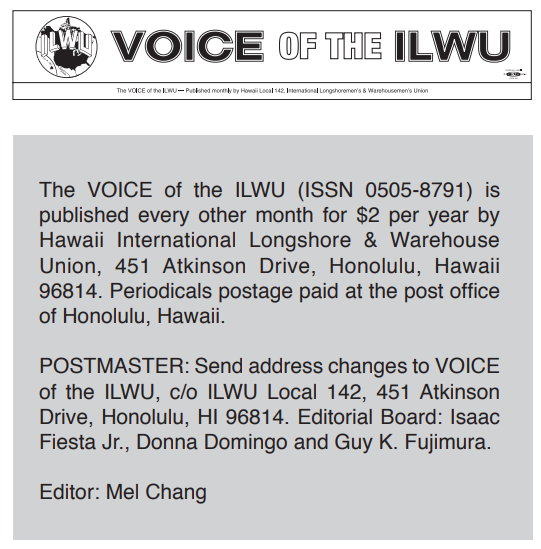I was “raised union.”
My mother, who immigrated to the United States from Nicaragua, worked the 3 p.m. to midnight shift at a toy factory after the birth of my younger twin sisters. She was a member of the United Rubber Workers, which later merged with the Steelworkers Union.
My father worked at a battery recycling plant and was a shop steward there for the Teamsters Union. His plant went on strike several times when I was a kid. During those times, he explained to my mother, my six brothers and sisters, and me that it would be tough. Although the union paid a small part of his wages when they were on strike, it was a hardship. But we understood that we had to make sacrifices. And we did.
When I was in ninth grade, my dad would come home at the end of the day and ask me to sit with him at our kitchen table. From his pockets, he would pull pieces of paper with writing in Spanish on them—notes given to him by his co-workers. There were all sorts of things scribbled on them: concerns about health and safety practices at the plant, questions about paychecks that didn’t add up, and ideas about how to improve the efficiency and productivity of the line. He’d ask me to translate them into English for him.
The first time, I didn’t understand what they were. When I asked, he explained: “They are the voice of the workers.” He said that the paper scraps started a conversation between the union and management. He told me it was a way to get them together “at the table.” After that, I understood.
My dad told that story to President Obama when they met. He said, with obvious pride: “Hilda has been doing this sort of work for a very long time. She still understands.”
I do. And since then, for my entire adult life, I have honored, respected and celebrated the voice of workers, which can only be guaranteed when they have the right to organize and bargain collectively.
That’s important to remember, particularly now, as states and cities grapple with enormous fiscal challenges, and everyone must sacrifice to meet those challenges. The public employees who are critical to our communities—from nurses to teachers to firefighters and police officers—have made and will continue to make sacrifices to help close budget gaps. But some state leaders have gone too far in the process. Budget sacrifices are one thing; demanding that workers give up their rights as union members—to take away their voice—is another.
For me, it’s not lofty rhetoric. During my two years as labor secretary, I’ve seen firsthand time and time again how unions make remarkable contributions to the strength and prosperity of our nation. In workplaces from my home state of California to Washington, D.C., where I spend most of my time now, and everywhere in between, organized labor is helping businesses improve their bottom line, make workplaces safer and more productive, and ensure that all Americans have the opportunity to achieve the middle class.

Organized labor does the same for state and local government “business,” too. I’m talking about the men and women who care for our neighbors, teach our children, keep our communities safe and clean, and run into burning buildings when others run out of them. These dedicated public servants — many of them union members — do their important work with little fanfare or recognition. Through their unions, they have a voice in their workplace, in their future... and most importantly, in our future.
They’ve made sacrifices, too — particularly in the past decade — and have worked closely with state and local leaders to help the public sector do what it is supposed to do. Their participation in our civil society is paramount to its success.
Their collective voice gives them the opportunity and the right to actually improve public education, public heath, and public safety and security. They deserve the right to have their voices heard when they speak out for job security and safe workplaces. Unions fight for better wages and benefits, not just for their members, but for everyone. They advocate for quality jobs that build a strong middle class.
In hard times, we all understand the need for sacrifices. Scapegoating teachers, firefighters and bus drivers by taking away their basic rights is not going to solve any problems. This is a time to find ways to work together and forge compromise. Neither side will get everything it wants, and everyone should share in the sacrifice.
Collective bargaining — what my dad called sitting “at the table” — is a cornerstone of our democracy and our middle class. It shouldn’t be cast aside in hard times. It can and should be part of the solution. Just as my dad explained to me with those paper scraps at our kitchen table, the best solutions come from people sitting down at the table together.
U.S. gets failing grade on labor rights—continued from page 2
of these prisoners are forced to work in prison factories owned and operated by state or federal governments. These factories produce over 175 different products such as clothing, office furniture, license plates, and provide services such as recycling computer parts and data entry. Prisoners are paid from 23 cents to $1.15 an hour. These products and services are only sold to government agencies and not the general public. Such prison work is a serious violation of the ILO prohibition against forced labor.
U.S. law has not eliminated the reality where women continue to earn less than men or put an end to the discrimination against immigrants, women, minorities, and others. In 1998 President Clinton asked the U.S. Senate to approve the ILO standard on equal pay for equal work, but after eight years, the Republican controlled Senate refused to ratify it.
The U.S. continues to allow children of farm workers to work long hours, a violation of child labor prohibitions.
Enforcing the standards
The International Labor Organization supervises the application of these labor conventions. Countries that ratify the conventions must submit annual reports on what they are doing to implement the labor standards.
The ILO will examine what the countries are doing and will investigate complaints by workers and organizations when countries violate the labor standards they adopt.
Finally, the ILO works with countries to ratify more of the labor standards by offering technical help and expertise.
Table of Ratifications
You can find a table of the labor conventions adopted by each of the 183 member nations here: http://www.ilo. org/ilolex/english/docs/declworld.htm.
Workers’ right to bargain collectively at risk—continued from page 1
Senators who voted for the anti-labor bill. They have already collected over 22,000 signatures on a petition to recall Dan Kapanke. Only 15,588 signatures were needed. A second petition to recall Republican Senator Randy Hopper also has enough signatures.
Wisconsin circuit court judge Maryann Sumi stopped the enforcement of the new law for at least two months because Republican legislators violated the state’s open meeting law when they called a session with less than two hours notice.
In Ohio, unions are mobilizing to let Ohio voters decide whether to approve or reject the anti-union law by putting the issue on the November 2011 ballot. The process begins when 1,000 signatures are submitted calling for a referendum vote. Organizers submitted over 3,000 signatures. Supporters of the referendum then have 90 days to collect about 232,000 signatures from at least 44 of Ohio’s 88 counties. The law would then be put on hold until the results of the November vote.
Public opinion polls in both states show strong support for the right to bargain collectively.
Republican controlled states such as New Hampshire, Tennessee, Texas, and Florida are closely watching the events in Ohio and Wisconsin. They are considering passing similar laws attacking workers’ rights.
The U.S. labor movement understands the need to stand in solidarity with Ohio and Wisconsin public workers. What is happening in these states could spread to other states and to workers in the private sector. Over 1,000 demonstrations were held on April 4 in support of collective bargaining and civil rights.

